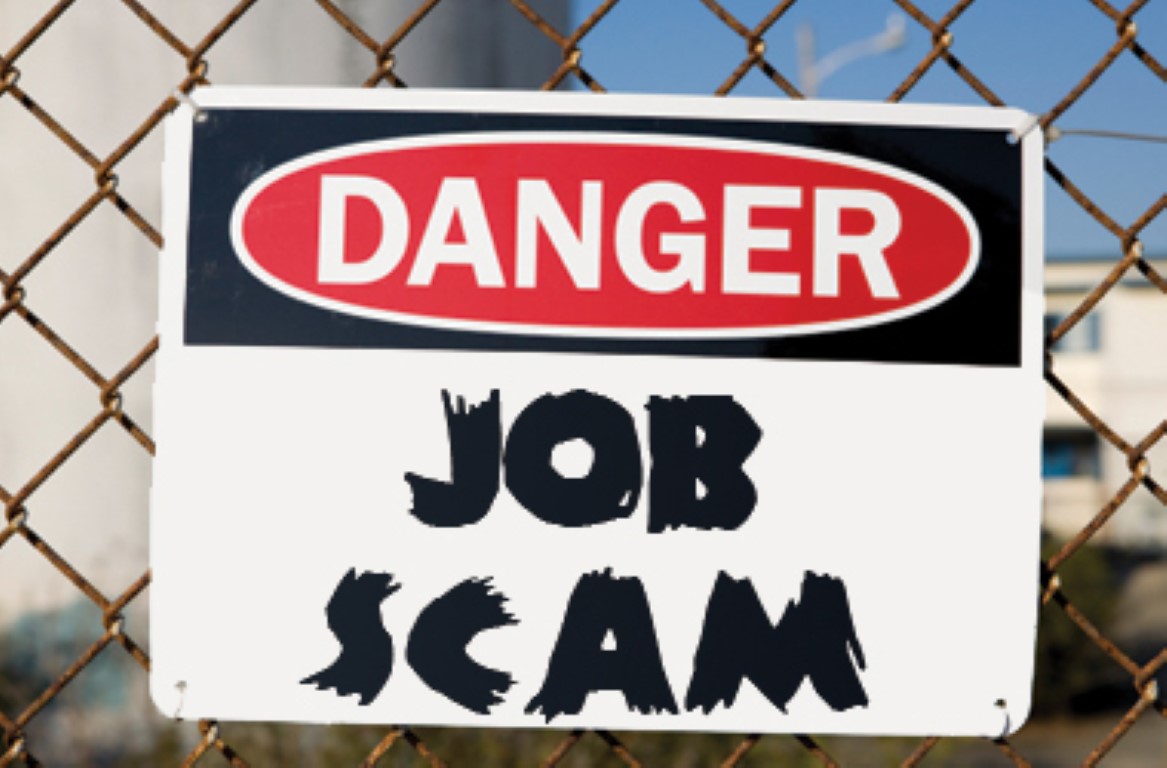
In a previous articles, we discussed on How to Write Good CVs & Cover Letters, Aptitude Test Samples and Interviews. From information gathered from some job seekers who did us the favour of reporting to support@careerload.com on job offers they suspected to be fraudulent, we will like to discuss some few checks that will tell you a job offer is a scam. With job search moving more online, it’s hard to detect whether a job offer or recruiter is in fact genuine. Sadly scammers are on the increase with more and more phony positions appearing on job boards, targeting job seekers who are vulnerable and desperate for work. Their goal is to separate you from your hard earned cash or to steal your identity.
To ensure you don’t become a victim of identity theft, read the below examples and see if your ‘exciting new offer’ matches one of them:

Isn’t it strange for an employer to ask you to pay them to give you a job? Being asked to pay some money, as little as
Sometimes crooks will try to get you to launder money or send illegal packages to you. They might send you a check and ask you to deposit it into your account, for you to keep some and then send the rest to a random account. However enticing a bit of extra cash is, never accept any job involving the transfer of money from your account to another.
Many scammers will ask for your bank account information to set up a direct debit for your wage or will ask you to fill out a credit report which will then give them the details to your social insurance number and birth date. Before entering personal information online, check to make sure the website is secure by looking at the web address bar. The address should be a ‘https://’ listed site.
Do you remember the good old saying ‘too good to be true’? If you think that the job offer is, you are probably right. Receiving a starting job offer for over GHS 50,000 per annum is complete nonsense. If you have received this kind of bogus offer, delete the email and list it as spam straight away.

Some emails from scammers are professionally written but most often than not you will notice that they are poorly written with many grammatical mistakes. If you receive a job offer letter with capitalization problems, missing commas (or too many) and generally bad English it can indicate that the offer isn’t real. If you have also received an attachment, do not open this, it most likely contains malware that will infect your computer.
You’ve received a fantastic job offer and have been asked to attend an interview on Yahoo messenger. What company in their right mind would interview a candidate by chat? Scammers often give you instructions on setting up a Yahoo IM account and will want to take the information to steal your identity. Most authentic companies interview face to face, unless you are overseas where you will attend a Skype video chat interview.
Another warning sign is when you have received a letter with no contact information, including a telephone number or company address. The company logo will also look distorted or of lower quality. Bear in mind that any official job offer will be written on a company letterhead page which includes their logo and contact information.
Before agreeing to any interview, do your research. If it’s a verified company you will find information on their official website and should also notice how long the company has been listed for. Some scammers go to the extent of creating their own websites, but the more research you do the more it doesn’t add up. You can also use scamwarners that list information on fraudulent activity and also check its authenticity on scamadviser. If a company has only been registered for a year you should be very cautious.
As fabulous as working from home and making millions sounds – it’s unrealistic. Most scammers will send something like the following:
“This is a work from home job. Work hours is from 9am-4pm Monday-Friday You will earn £45 per hour for this position, you are also expected online at Yahoo messenger during working hours. We also offer flexible hours….”
The most obvious sign of a fake offer is, of course, a job that you haven’t applied for. Why would a company randomly select you and send you a job offer without any other form of communication with you? If you are applying for multiple jobs, keep a record of the ones you have applied for to ensure you can filter through this kind of spam.
When you’re job hunting, it can be easy to fall prey to a job scam. Stay one step ahead with the above tips and you’ll find a legitimate job in no time.
Have you ever received unrealistic job offers before? If so, share them with us through the comment section below…«